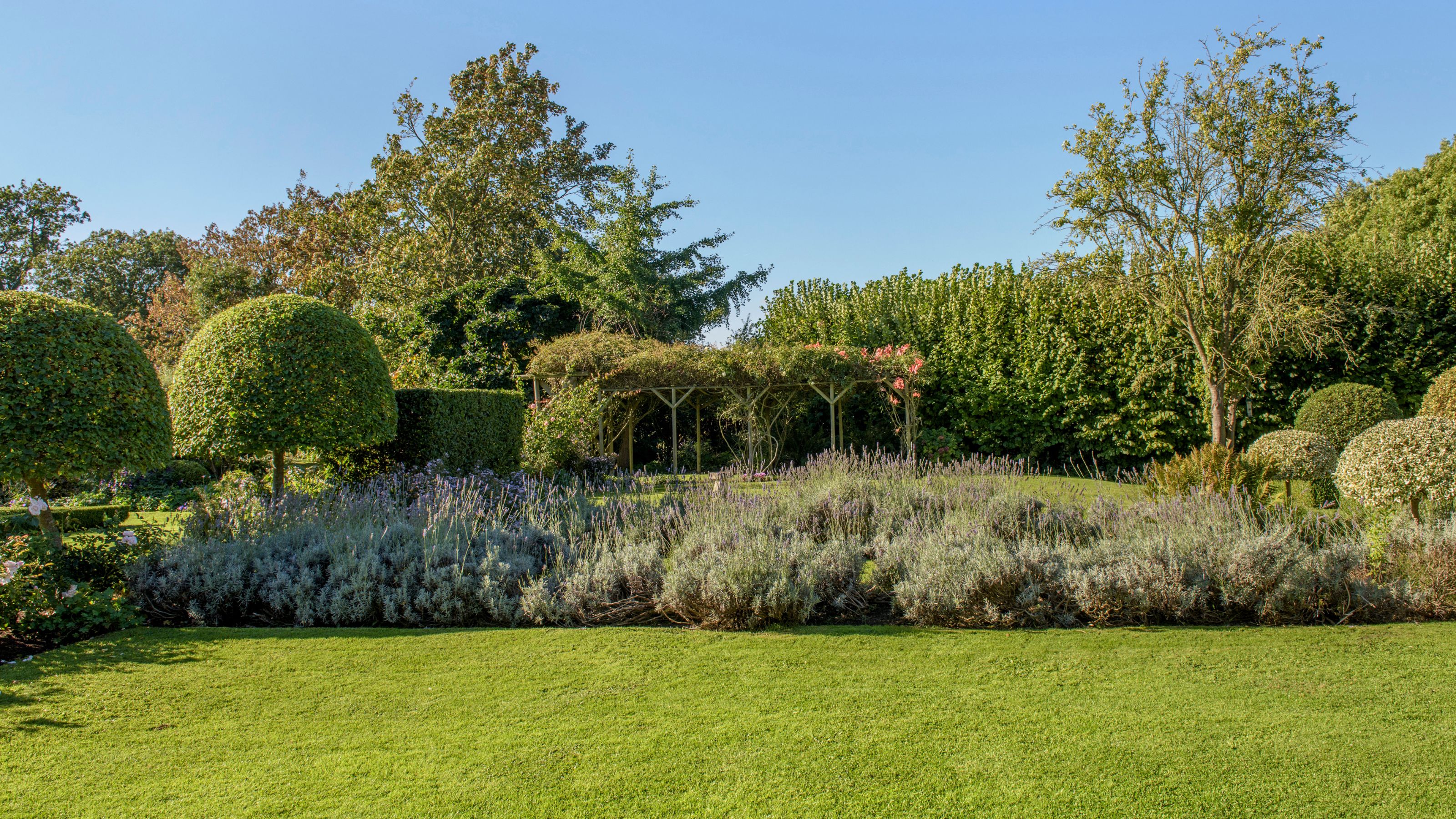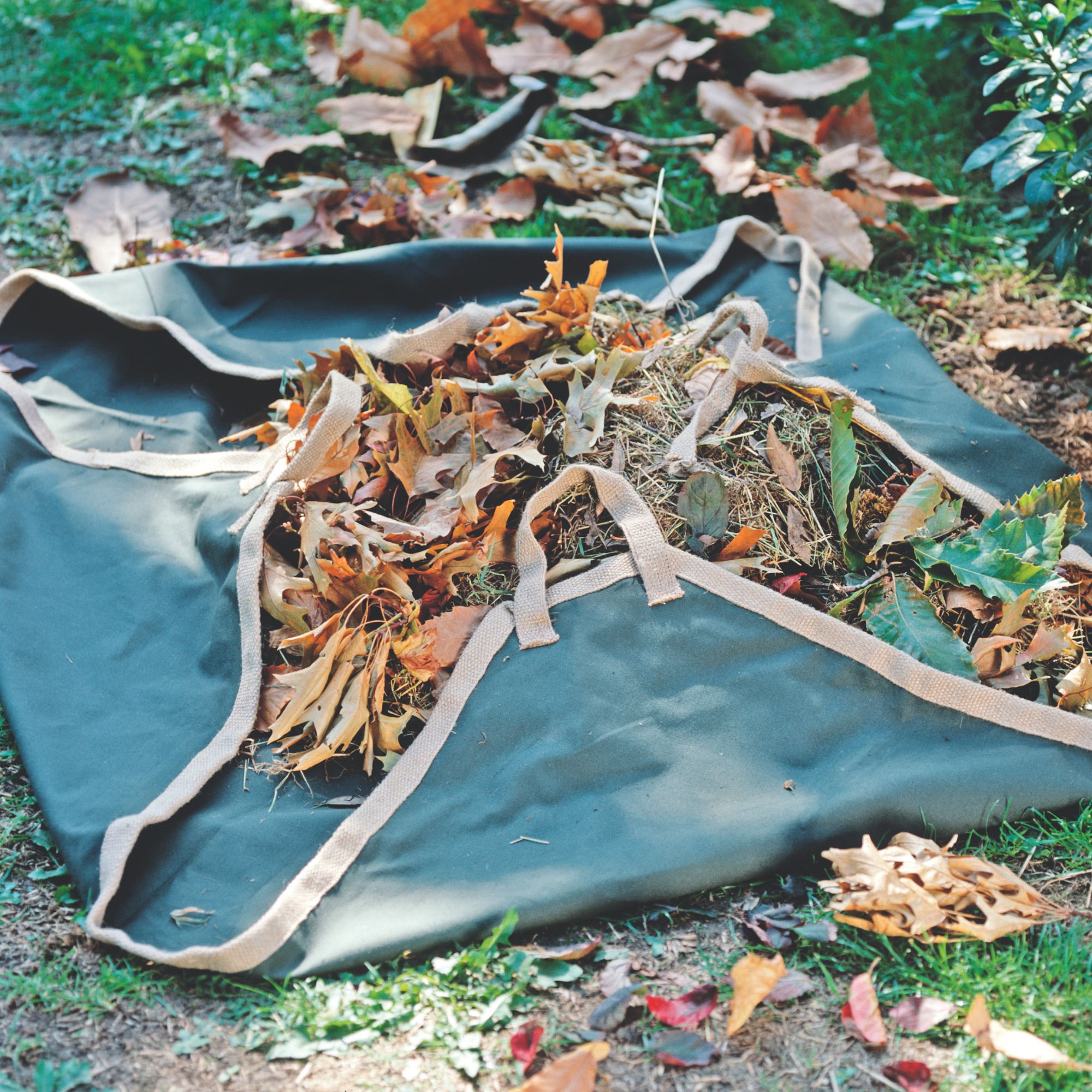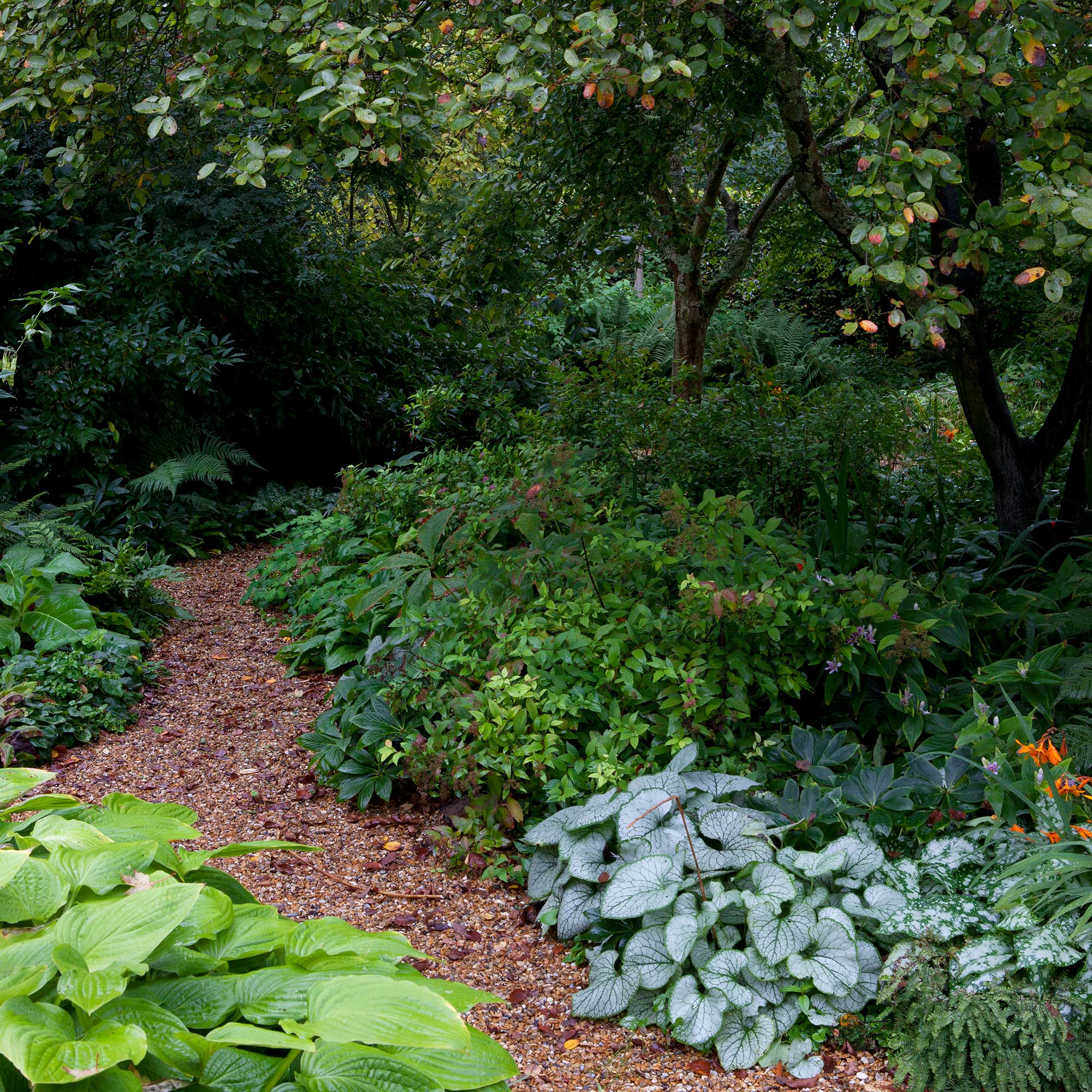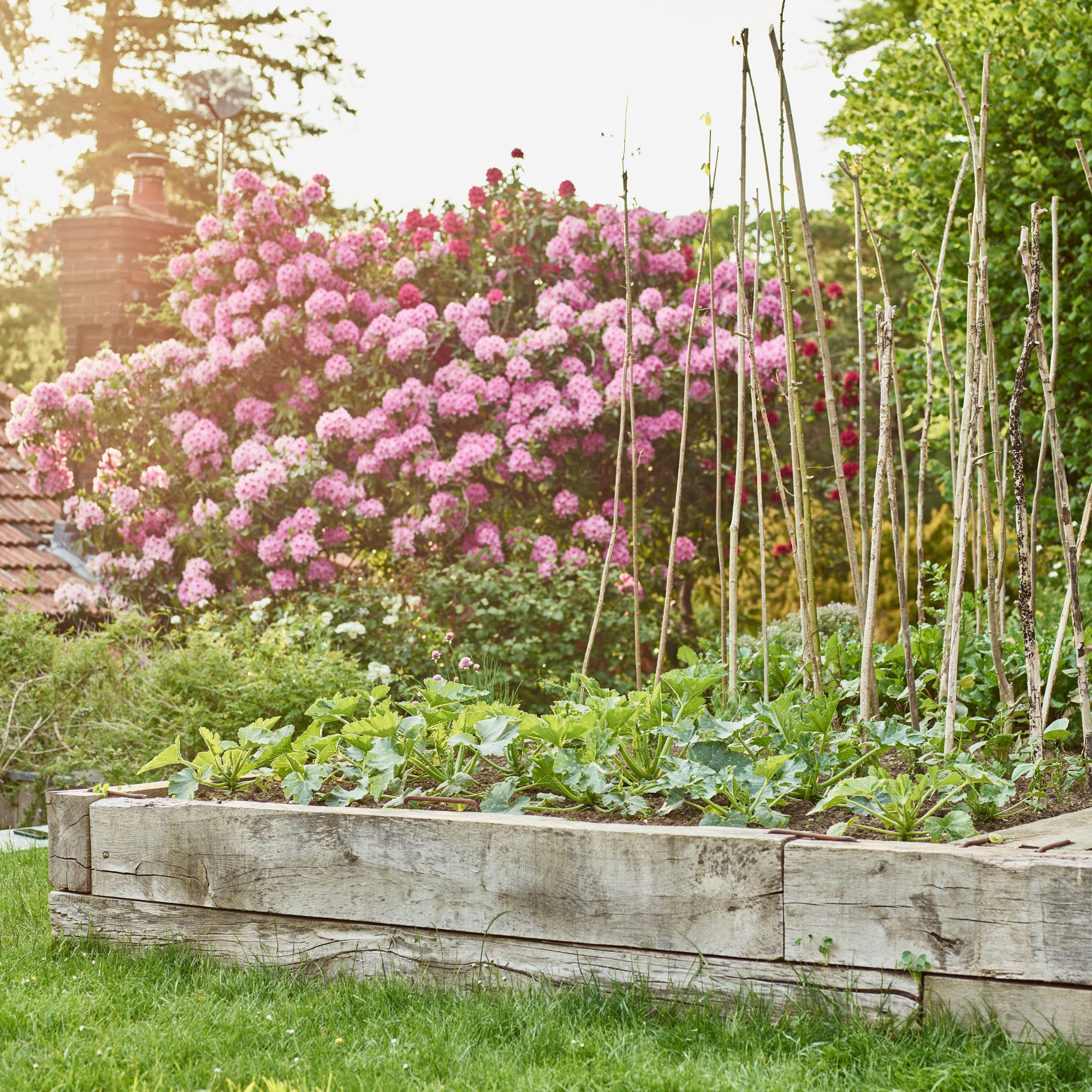7 types of mulch every gardener should know about – experts reveal how to use them in your garden to control weeds and reduce how often you water your plants
There are many benefits to mulching, but it all depends on the type of mulch you use for the job...


Sign up to our newsletter for style inspiration, real homes, project and garden advice and shopping know-how
You are now subscribed
Your newsletter sign-up was successful
It's official: getting to know the different types of mulch is one of the easiest, most affordable way to improve the health and appearance of your garden borders.
While mulches are most famously used to keep weeds out of flower beds, they can also make a noticeable difference in everything from overwintering to soil erosion. If you play your cards right, mulching can even reduce how often you need to water, making it a smart choice for busy gardeners.
There are many types of mulch to choose from, including leaf mould, bark chippings, homemade compost, gravel, and more. Each type has its own pros and cons depending on your garden’s needs, though, so it's best to do your research first...
The different types of mulch and their uses
Whether you’re mulching around perennial plants, topping up pots, or hoping to get rid of weeds naturally, it's important to know the differences between all the types of mulch available.
'Mulch is used in the garden to improve soil, retain moisture, suppress weeds and regulate the temperature,' explains Morris Hankinson, director of Hopes Grove Nurseries. 'There are many types of mulch available, and which you use will depend on availability, cost and what you will be using it for.'

Morris Hankinson is the founder and managing director of Hopes Grove Nurseries Ltd, the UK’s only specialist grower-retailer of hedging plants. He established the thriving business in 1992, shortly after graduating with a Commercial Horticulture Degree from Writtle College, Essex.
'Mulch made from natural materials will break down over time and improve soil quality from the structure to the nutrient levels,' he adds, noting that it's best to steer clear of certain dyed or synthetic options if you’re hoping to encourage pollinators and wildlife.
In this guide, we explore the different types of mulch available, how they work, and where they’re best used – helping you pick the perfect match for your outdoor space, no matter the season.
Sign up to our newsletter for style inspiration, real homes, project and garden advice and shopping know-how
1. Horse manure
Horse manure (or something like Amazon's Country Natural Organic Stable Manure, £11.99) is one of the better-known types of mulch, and for good reason.
'Horse manure is the most commonly used mulch and can be very nutrient-rich, helping to break down soil and feed the worms,' explains Morris.
'Fresh manure should be allowed to break down before application as it can be too warm and rich for plants, so well rotted is best,' he adds.
2. Leaf mould

One of those genius garden trends we can get behind, it turns out that raking up all of those pesky autumn leaves each year can provide us with one of the best types of mulch: leaf mould.
'Leaf fall naturally replenishes the soil, so by collecting fallen leaves, bagging them up (with some air holes) and storing over winter, you will allow them to break down for use as a mulch,' explains Morris.
3. Straw and hay
If you're learning how to grow strawberries this summer, then straw (or hay) is the best type of mulch for you.
'I really rate straw as a good mulch for strawberries because it keeps the fruit clean, suppresses weeds, and helps retain moisture in the soil,' says Christopher O'Donoghue, director at Gardens Revived. 'All you have to do is spread a thick layer around the plants before those juicy berries appear!'

A gardener with over a decade of experience under his belt, Christopher set up Gardens Revived with his brother, Andrew, in 2018 to create a thriving family business. Together, they have worked on residential gardens, listed buildings and gardens, flower shows and large estates with some exceeding 70 acres – many with historical significance.
Morris agrees, adding that 'straw and hay make ideal for vegetable beds'.
'It’s lightweight to carry, easy to place around plants and breaks down quickly to help improve soil,' he promises.
Try something like Strulch Mineralised Straw Mulch, £20.97, Amazon, for all of the above, plus an added bonus; it apparently helps to deter slugs and snails, according to the many five-star reviews!
4. Bark chippings

One of the more aesthetically pleasing types of mulch, wood or bark chippings, is perfect for mulching individual pots, containers and decorative borders.
'This one is commonly used in gardens as a mulch and is ideal around trees and hedging,' adds Morris, noting that wood and bark chippings work to 'reduce weeds, insulate against frosts, and slowly enrich the soil as it breaks down'.
While you can make this mulch yourself, something like RHS SylvaBark pine mini mulch from £18.99 at Crocus is guaranteed to give you some serious bang for your buck. It should last for at least two years before needing a top-up.
5. Grass clippings
Should you leave grass clippings on a lawn after mowing it? Absolutely, so long as you spread them around to avoid any large clumps, this garden waste material is actually one of the cheapest types of mulch around, and can add lots of nutrients back to the soil.
'Grass clippings can be used in compost heaps or even spread over lawns after mowing to replenish with nitrogen,' says Morris. 'However, only use this sparingly or the clipping will mat together and rot.'
It's also a good idea to avoid mulching when it’s wet, as grass clippings won't break down so easily in these conditions.
6. Compost

Whether you buy your own or make your own compost, this is one of those types of mulch that can really work wonders on your flower and vegetable garden.
'Peat free, organic is the best to look out for if purchasing some, otherwise, creating an at-home compost heap is beneficial as long as the mix of green and brown materials is balanced,' says Morris.
'Compost can be used anywhere in the garden to improve soil, supply nutrients, suppress weeds and retain moisture in the soil.' Mulching with compost is also a good way to slow down evaporation of water in the drier summer months, which should help prevent any unhappy garden watering mistakes, too.
We rate Sylvagrow multi-purpose peat-free compost from £7.99 at Crocus if you haven't got the time to make your own from scratch, as it's one of the best for anyone dreaming of a truly sustainable garden.
7. Gravel or rocks
There are plenty of non-biodegradable types of mulch to consider, including gravel, rocks, stone chippings, and even seashells (although the latter is best used for container gardens).
'Gravel or rocks can be used as a mulch and work well around plants that like heat at the roots,' says Morris. 'They won’t break down and can look smart, but they will retain heat in the soil, so use only where heat is needed.'
If you want to get around this, of course, you can lean into those Mediterranean garden vibes and use something like White 10-20mm Chippings, £10 at B&Q; the bright colour will reflect sunlight and keep roots cooler in hot weather.
FAQs
What is the best type of mulch to use?
While the best type of mulch will depend on the job you want it to do, most experts will rate peat-free garden compost or wood chippings as their favourites.
'Peat-free compost is brilliant for feeding the soil while locking in moisture, especially around veg and herb beds, plus it’s kinder to the planet,' says Christopher O'Donoghue of Gardens Revived.
'For borders and beds, I like using bark chippings; they look tidy, break down slowly, and do a great job keeping weeds down without needing constant topping up. It’s about finding what works for your garden, but those two are my go-tos.'
What does Monty Don use for mulch?
If you're wondering what Monty Don uses for mulch, the gardening guru has spoken at length about the benefits of leaf mould on his gardening blog, but he also recommends 'mushroom compost, garden compost or bark chips'.
Whatever you do, he adds, be sure to 'use a well-rotted organic material... and be generous with it'.
Now that you know the different types of mulch available, all that's left to do is figure out which one will work hardest for you and your garden.
Happy mulching!

Kayleigh Dray became Ideal Home’s Acting Content Editor in the spring of 2023, and is very excited to get to work. She joins the team after a decade-long career working as a journalist and editor across a number of leading lifestyle brands, both in-house and as a freelancer.